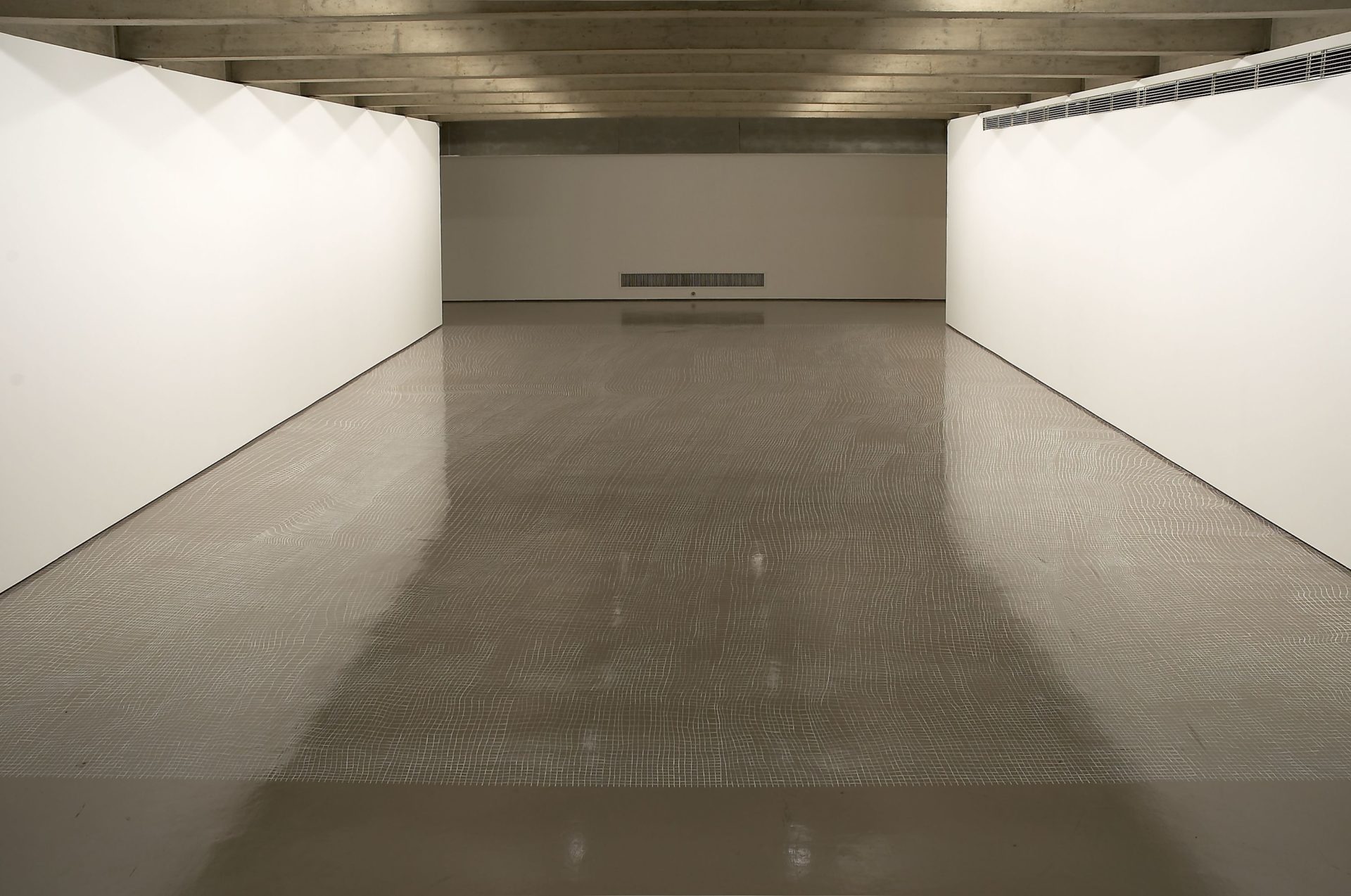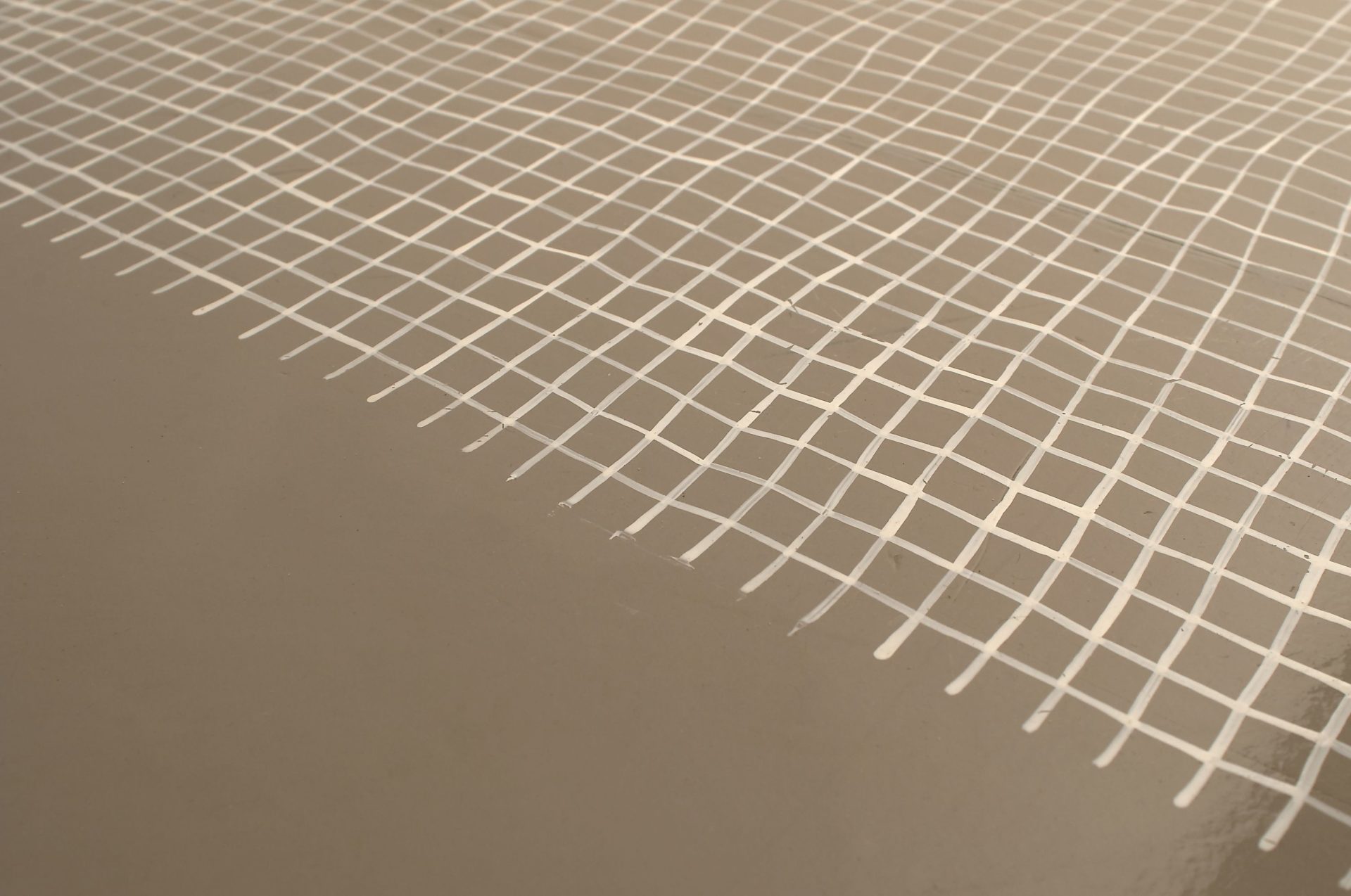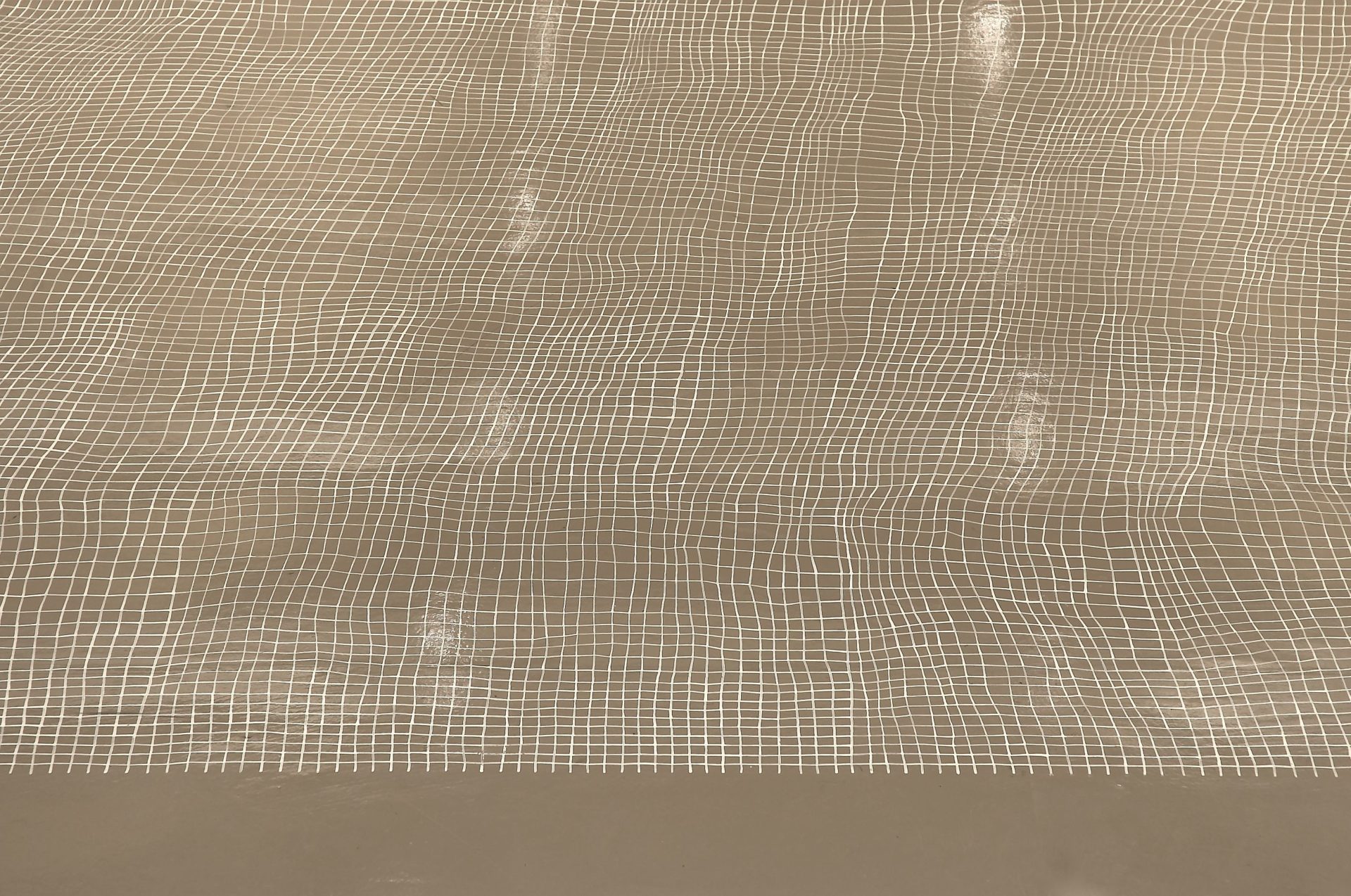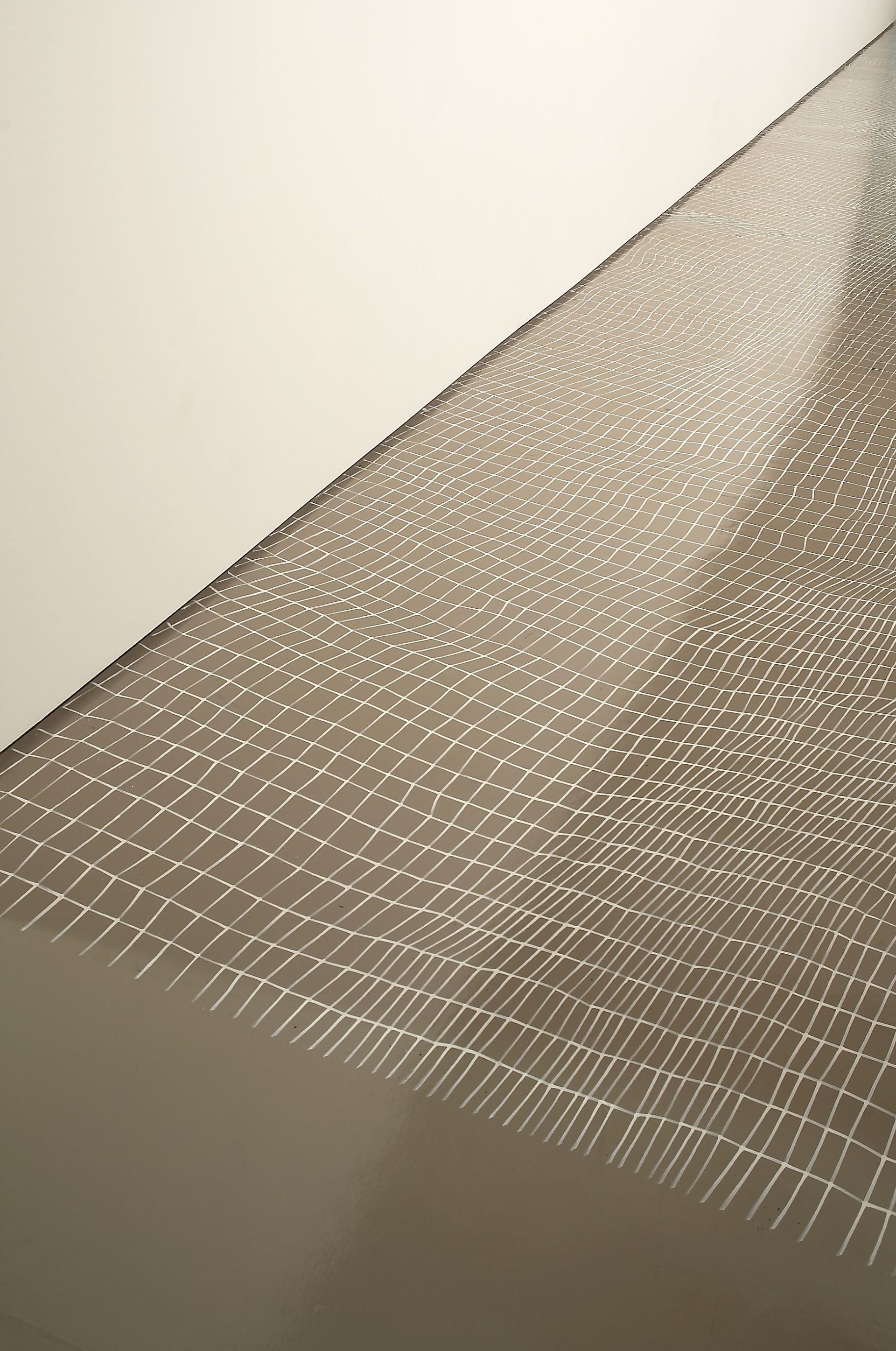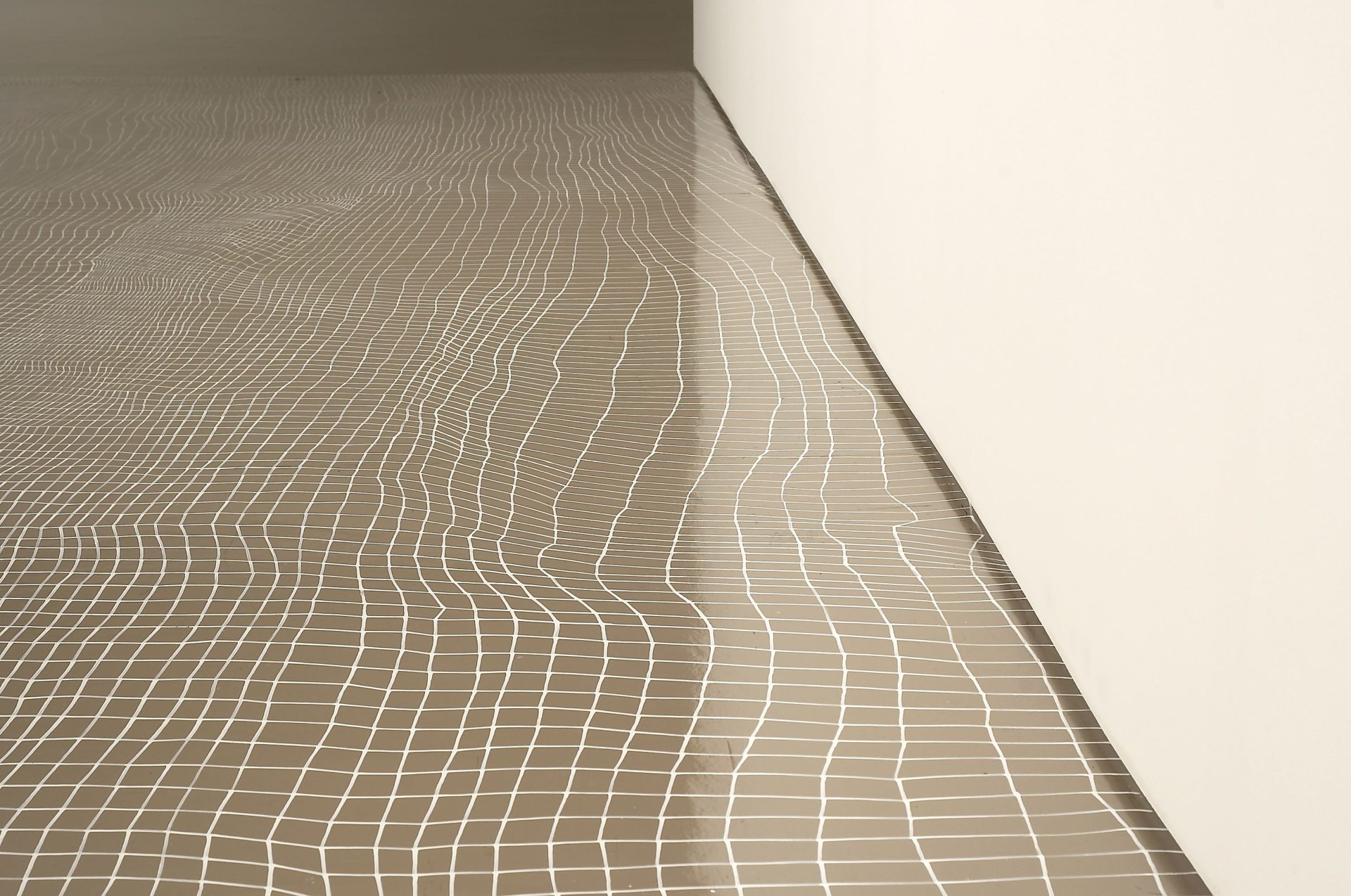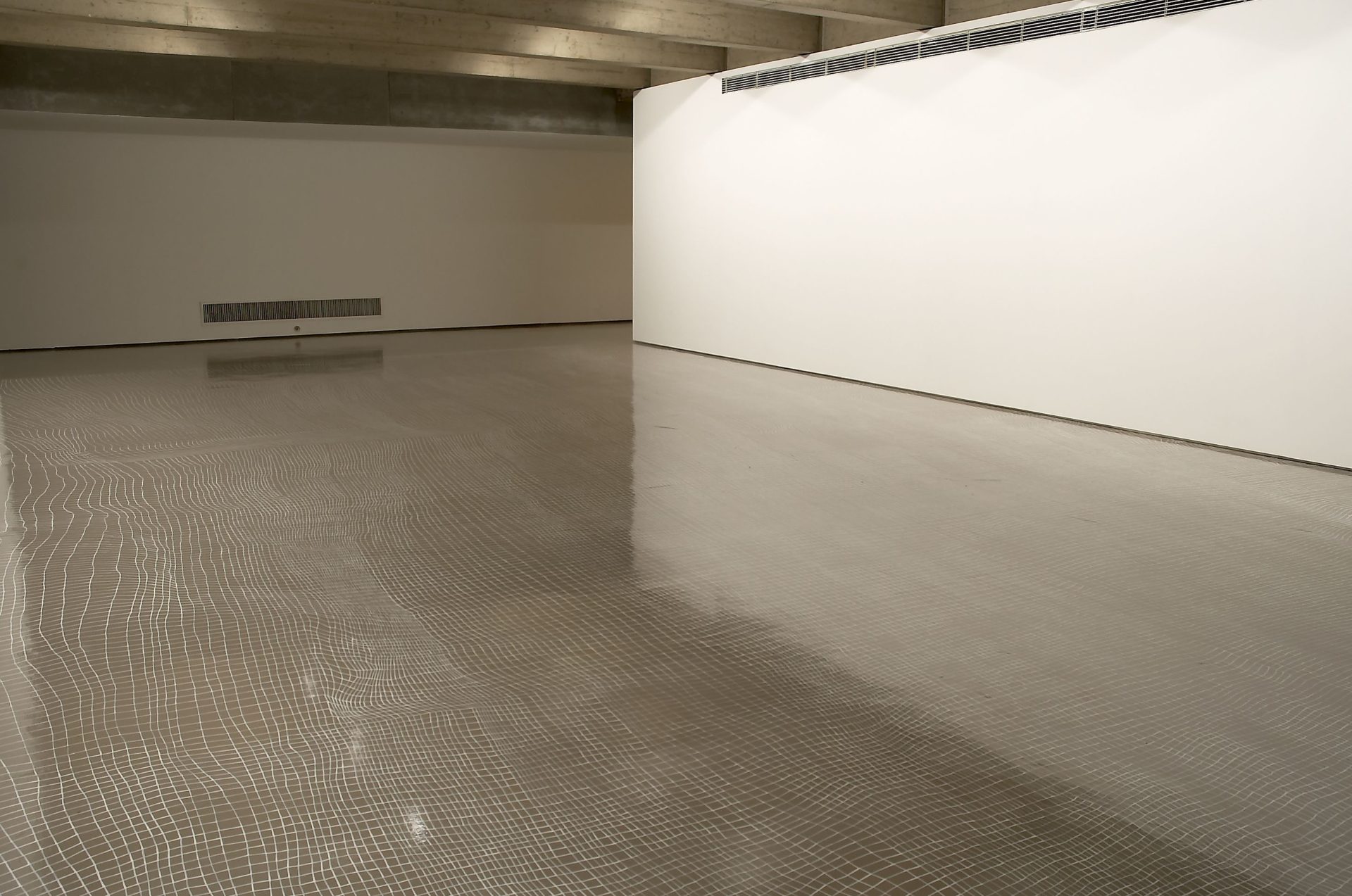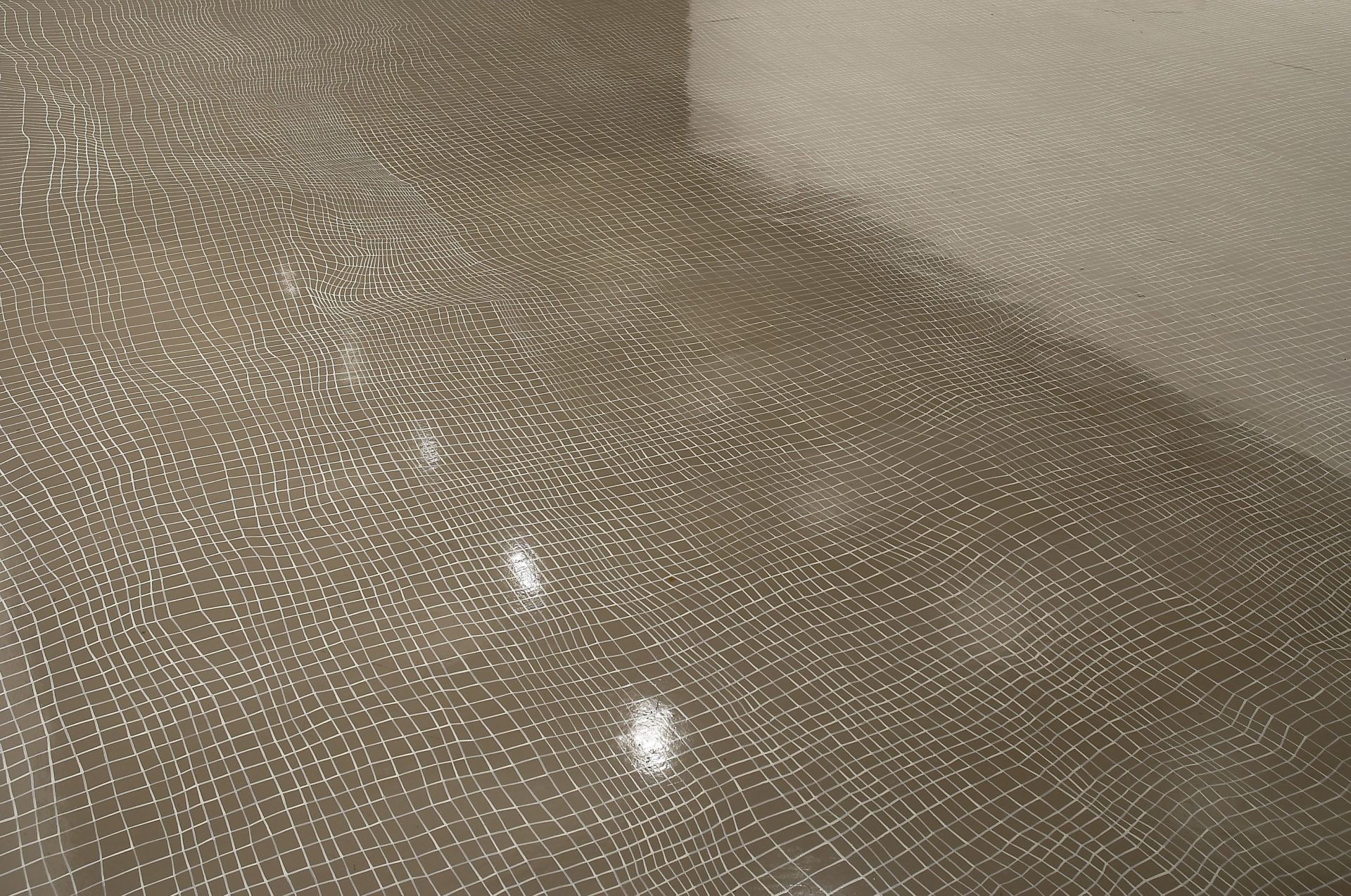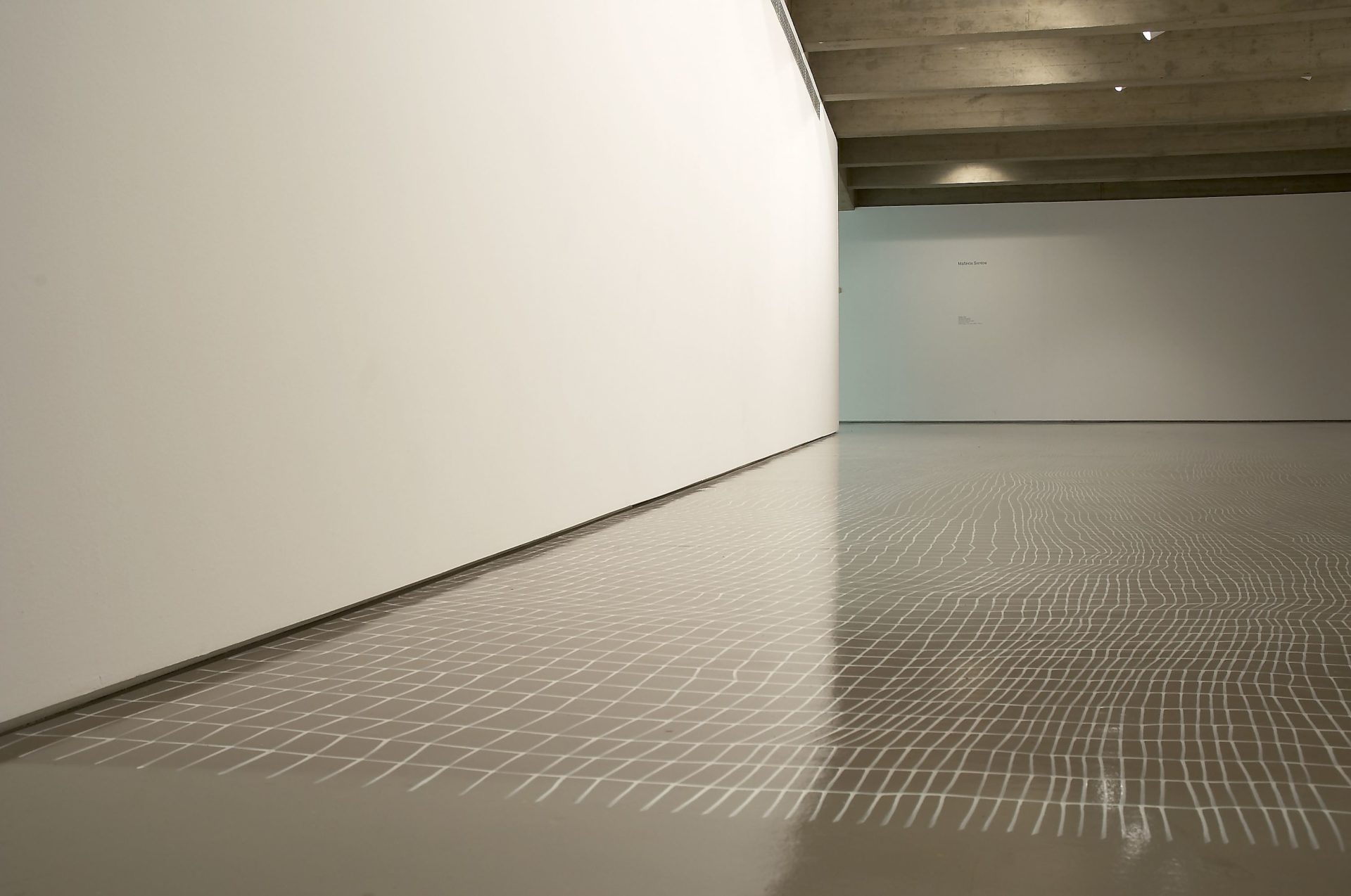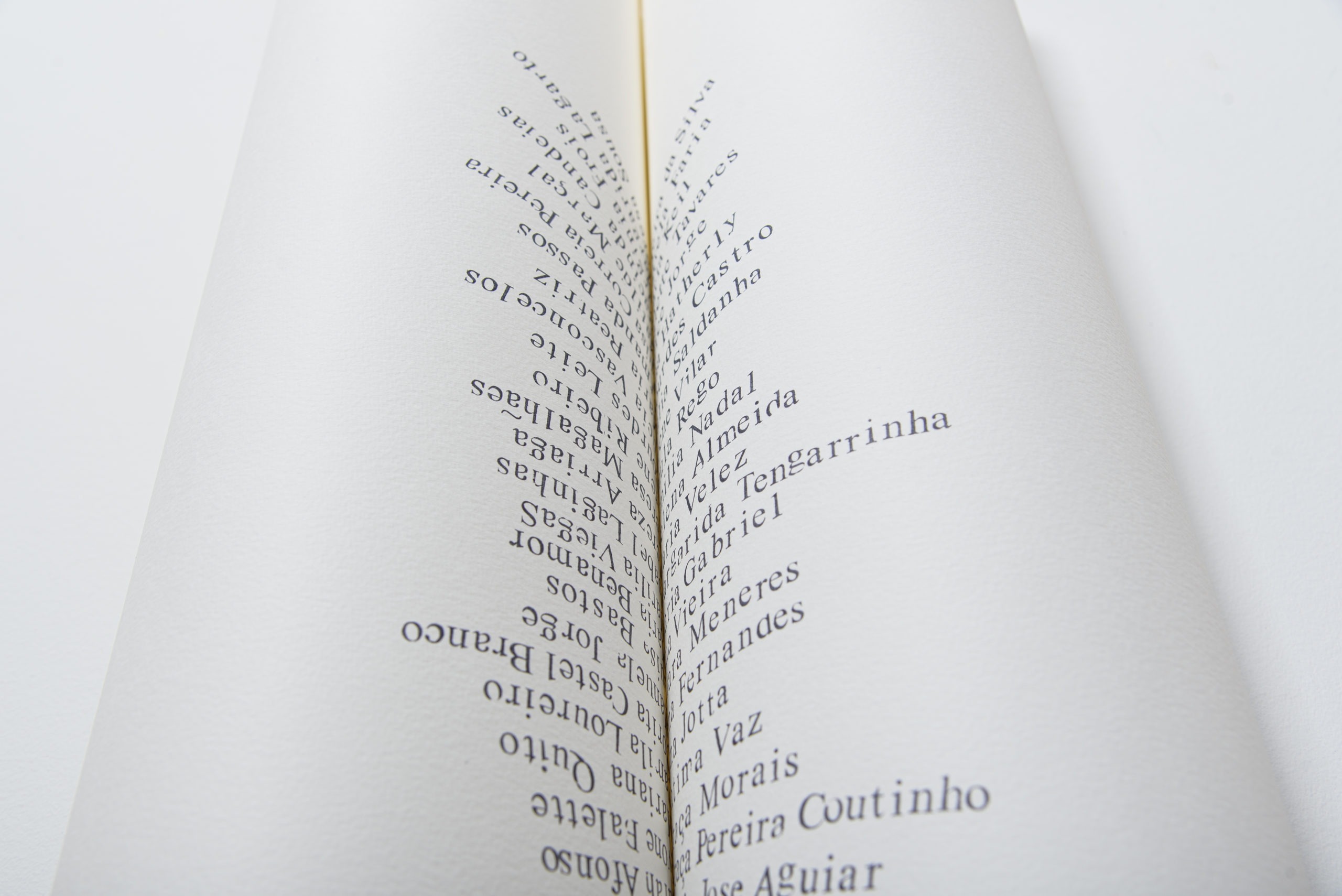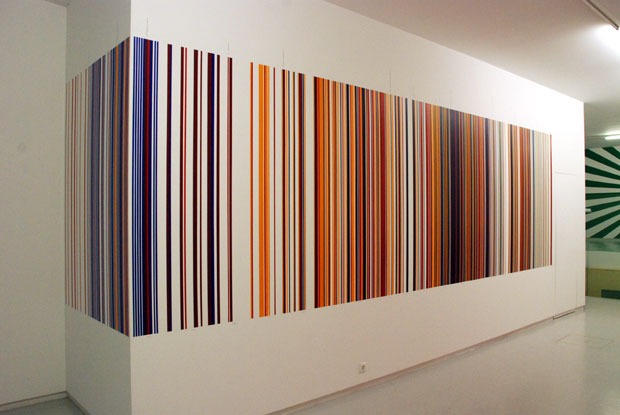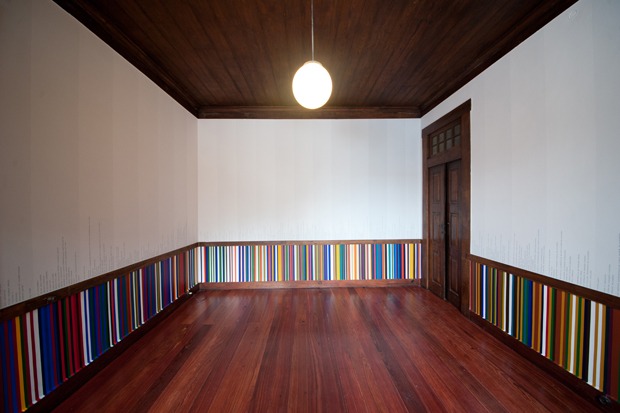“7 Artistas ao 10º Mês”, group exhibition, Calouste Gulbenkian Foundation, Lisbon.
Mafalda Santos’ site specific intervention for “7 artistas ao 10ºmês” group show at Calouste Gulbenkian Foundation, curated by Leonor Nazaré
“In 2002, a web begins to emerge, in small pieces, inside crystallized abstract figures, so that, in the following year, it can extend into highly expansive spatial occupations. Although limited to the space of the canvas, these webs, painted in white with a very fine brush, are true tiny details, threads of tireless weaver whose initial parallelism inevitably ends up twisting, deflecting, creating involuntary knots and, sometimes, volume. Like a gauze cloth for uselessly large bandages, these huge fabrics stretched over the wall can make us think of the whole body as a big wound or burn that they can welcome. In the barrier and translucency that they create in front of us is the challenge of wanting to tear them apart, to test their resistance.
In the unpredictability of the directions of the threads, we feel the human character, fragile but persistent, of the manuality of the process. Seen as deformation of a spatial tissue, these surfaces lead to the imagination of the effects of gravity, of space / time distortions, of the invisible presence of the forces of the bodies that approach; they allow the convening of physics, of the notions of fractal and of quantum identity, as Mafalda Santos and José Roseira explain very well in a text about the artist’s recent work. Conceived as a network, in the broadest and most contemporary sense of the term, they call for all the speculation that can be made around information technologies and communicational globalization. For the artist, on the reticulate, as a basic composition, Rosalind Krauss’ thinking can also be projected around the idea of “Grid”.
But M.S. speaks mainly of “underground tensions that alter the aspect of the network” and “opening to improvisation”, in a pictorial process that she feels almost autonomous from her decision. In this exhibition, thought of as an immense mesh spread across the floor and part of the walls, it acquires the status of a real, unconfined spatial structure, an integral part of the place where we move, a kind of Harttman’s network (geobiology).”
Leonor Nazaré, 2005
(excerpt from the curators text)
